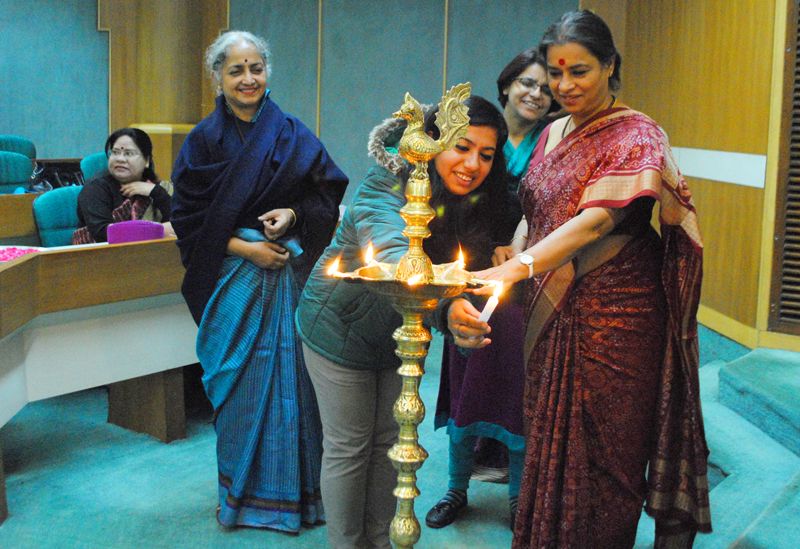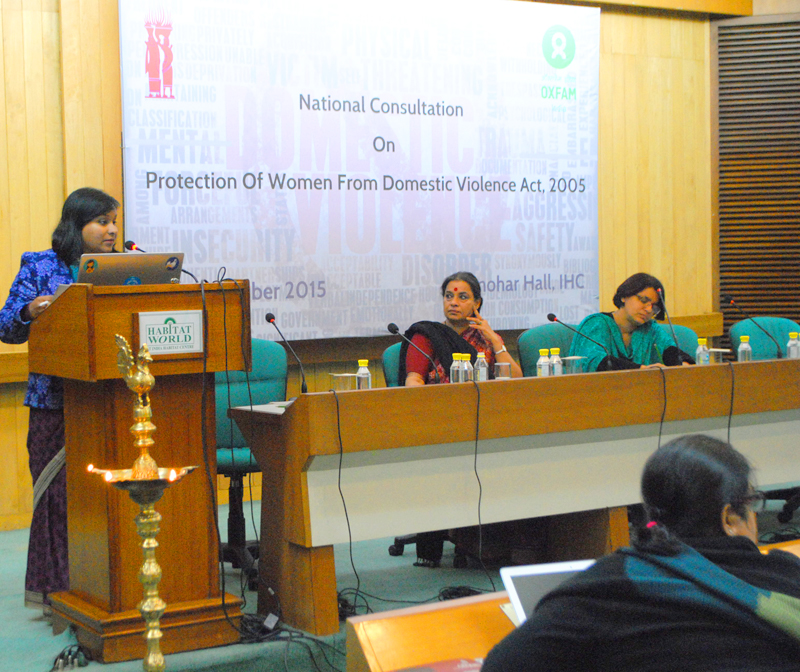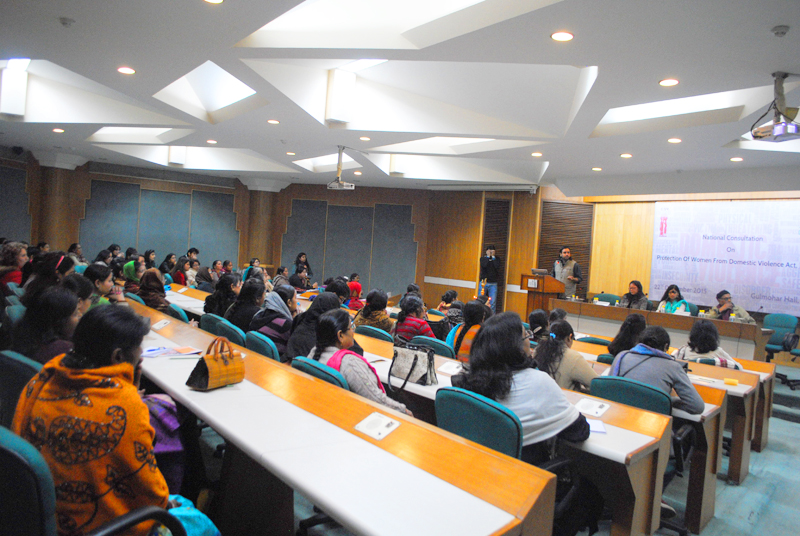Centre for Social Research (CSR) in collaboration with Oxfam India hosted a National Consultation on Protection of Women from Domestic Violence Act, 2005 on 22nd December, 2015 at India Habitat Centre. The consultation was graced by eminent speakers from various fields including prominent personalities like Dr Kiran Bedi. The list included Risha Syed, Legal Consultant with Ministry of Women and Child Development (MWCD); Julie Thekkudan, Lead Specialist-Gender Justice with Oxfam India; Professor Anand Kumar, Retired Professor of Sociology from JNU and National Convener of the Swaraj Abhiyan; Usha Joshi, Special Police Unit for Women and Children; Tenzing Choesang, Lawyers Collective; Justice Monika Saroha, ; Audrey D’Mello, Majlis Legal Centre; Dr Farzana Khan, My Choices; Gayatri Sharma, Independent Consultant; Namrata Chadha, President at Maadhyam and Dr Ranjana Kumari, Director, CSR.


CSR through this National Consultation took the initiative to highlight and examine the gaps in the implementation of PWDVA as it enters its tenth year of implementation. In 2012, a Centrally Sponsored Scheme was proposed to the National Commission for Women that would help to strengthen the implementation of the PWDVA. The scheme outlined the budget and actions needed to enforce the PWDVA, outlining among other things the number of Protection Officers and Service Providers required. In 2015, we emphasized enhanced budgetary allocations, appointment and training of PO’s and monitoring of PWDVA for the effective execution of the Act. The expected outcomes of the consultation were; enhanced budget allocation, appointment of full time PO’s, strategy for training and sensitization of police, judiciary and general public, improving and coordination among different government agencies.


In the introduction to the Consultation, Dr Ranjana Kumari raised some poignant concerns. The term ‘violence’ is associated with gaining access and control over another person and extends from home to the community. In fact, the idea of a relationship has been colored with violence. In a research conducted in Haryana, 80% of men said that if you don’t beat your wife she becomes quarrelsome. Moreover, to maintain this authority and control, women are made to feel bodily impure and ‘adjustment’ is the message given. This inequality is further perpetuated by low educational levels among women and the custom of dowry, ultimately leading to “femicide”. Unfortunately, police data on the same is only the tip of the iceberg as a large number of cases go unrecorded and 95,000 cases are pending in court. Furthermore, the institutions of society breed this culture of violence when they start associating the shame of it with the victim/survivor rather than the perpetrator of the same.


The event also saw survivors of domestic violence coming forward to share their own struggles and the overcoming of it. A documentary called ‘Second Wind’ developed by CSR was shown illustrating the work done by our counselors in supporting these women to rebuild their lives and start over.
Some major highlights of the consultation were:
- Allocation of Nirbhaya Fund does not reach the MWCD with it only being an appraisal and proposal drafting committee.
- The need to work at preventive levels alongside strengthening response mechanisms.
- Increased information sharing amongst civil society organizations and government agencies via social media.
- Accountability of the states in cases of legislative failure to protect women from domestic violence.
The PWDVA, 2005 has been a logical, conclusive end of the 20 year long women’s struggle and cannot be allowed to reach a point of stagnation. The recommendations and suggestions put forward during the National Consultation will be drafted and sent to the Prime Minister’s Office seeking better implementation of the PWDVA that is slowly losing steam.




